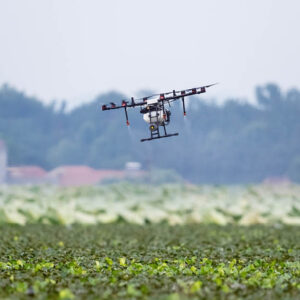
An article by dronelife.com shares:
Researcher Nintin Sanket is working to develop a drone-based solution to the population decline of pollinating species around the world. A third of the world’s food is dependent on pollination from bees, yet they are increasingly threatened by climate change and harmful agricultural practices. Sanket and his team are developing a new strategy to tackle this challenge, utilizing automated drones.
“A lot of conservationists are working to preserve bees. But the climate is changing pretty drastically, so we need alternatives as well, including looking at other ways to pollinate things,” remarked Sanket.
Estimates suggest that half of North American and Hawaiian bee species are currently in decline, and nearly a quarter are at risk of extinction. If conservation alone cannot preserve pollinator populations, human interventions will be critical to supplementing pollination to meet the food production needs of the planet.
Nintin Sanket is the Assistant Professor in the Department of Robotics Engineering at Worcester Polytechnic Institute. His work on “RoboBees” began while he was still in graduate school, and his doctoral dissertation on the topic earned awards at the University of Maryland. Now, he works on a team of doctoral and master’s students to further hone the capabilities of their prototype “RoboBees”.
The most recent prototype is a compact 4.7 inches across with four propellers. It houses a camera, rechargeable lithium battery, and computing system. The entire pollination process is fully automated. The drone locates the flower, flies down to collect pollen, and then moves onto the next flower. Sanket’s team now hopes to increase the drone’s agility, durability, efficiency, and flight time.
While Sanket estimates a fully robotic pollinating swarm is still many years away, there are promising technological innovations happening around the world that may lend themselves to his vision. Researchers at other institutes are finding mechanical solutions that may allow the drone to be lighter and faster than its current state, and Sanket’s own team are applying bee behavioral research in the automated drone’s programming.
The “RoboBee” would undoubtedly have numerous alternative applications across a broad range of industries, but for now Sanket and his team are committed to using it to solve a critical challenge facing the agricultural industry.
Soaring to new heights, together.
Be sure to visit the BWU Technology Partnerships Initiative website to learn more about how our NEOFIX program drives economic growth, promotes policy and infrastructure to improve drone safety and efficiency in various industries, and ensures that drone technology is being used responsibly.

